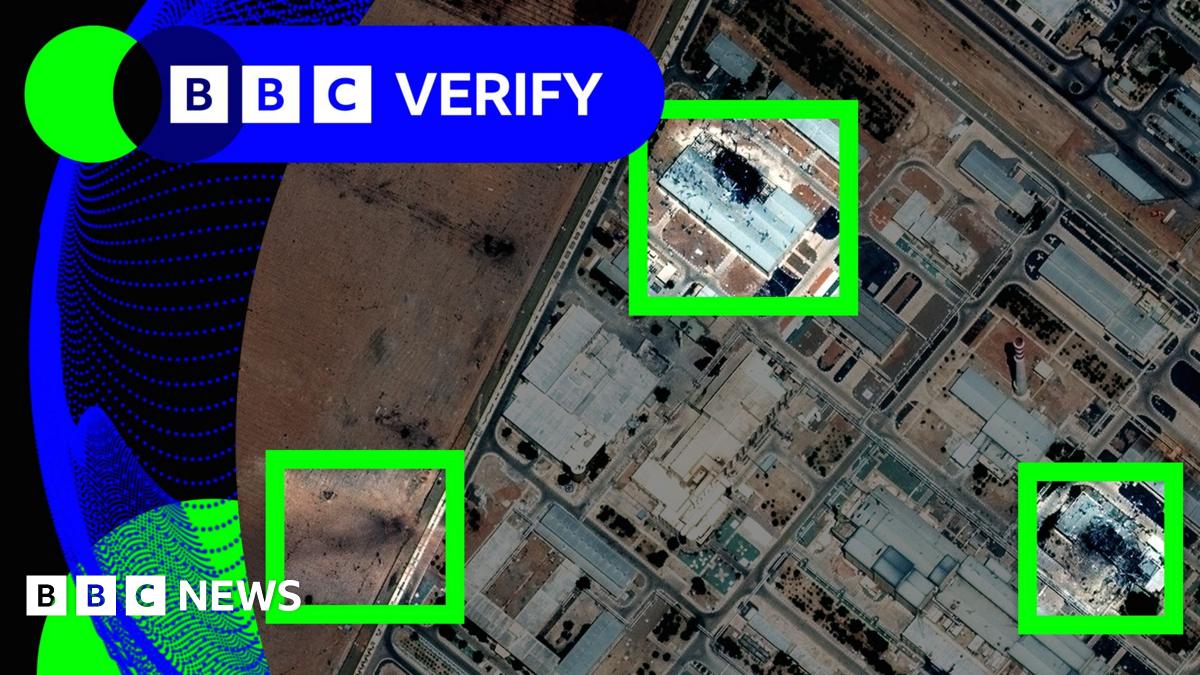What Happened
Recent developments in the ongoing conflict between Israel and Iran have escalated significantly, marked by missile strikes and retaliatory actions. On June 16, 2025, Iranian missiles targeted Israeli cities, including Tel Aviv and Haifa, resulting in civilian casualties and damage to infrastructure. Reports indicate that at least eight people were killed and numerous others injured as a result of these strikes. In response, Israel’s military has claimed to have destroyed a significant portion of Iran’s missile launch capabilities and targeted key military and intelligence officials within Iran.
The conflict has intensified over several days, with Israel conducting airstrikes on Iranian nuclear facilities, specifically targeting sites in Natanz and Isfahan. Satellite imagery has revealed extensive damage to these facilities, including the destruction of critical buildings involved in uranium enrichment. The International Atomic Energy Agency (IAEA) has confirmed that no increase in off-site radiation has been detected, indicating that the strikes have not led to a nuclear leak.
Key Details
- Missile Strikes: Iran launched a barrage of missiles, with reports indicating that fewer than 100 were fired, of which seven landed in Israel. The strikes resulted in civilian casualties and significant property damage.
- Israeli Response: Israel’s military reported that it had killed several senior Iranian intelligence officials and destroyed over a third of Iran’s surface-to-surface missile launchers. The Israeli Defense Minister warned that residents of Tehran would “pay the price” for the attacks.
- Casualties: The death toll in Israel from the Iranian missile strikes has reached 24, all civilians, while Iranian casualties from Israeli airstrikes are reported to be at least 224, with a majority being civilians.
- International Reactions: The conflict has drawn attention from global leaders, with discussions at the G7 summit focusing on the need for diplomatic solutions and the prevention of nuclear proliferation.
Multiple Perspectives
The situation has prompted various interpretations and responses from different stakeholders:
-
Israeli Perspective: Israeli officials assert that their military actions are necessary for national security, aimed at dismantling Iran’s military capabilities and preventing the development of nuclear weapons. They emphasize the need to protect Israeli civilians from Iranian aggression.
-
Iranian Perspective: Iranian authorities claim that their missile strikes are a legitimate response to Israeli attacks on their nuclear facilities and military leaders. They maintain that their nuclear program is for peaceful purposes and that they oppose the development of weapons of mass destruction.
-
International Community: The international community remains divided on the issue. Some nations support Israel’s right to defend itself, while others criticize the escalation of violence and call for restraint from both sides. The G7 leaders have expressed a desire for diplomatic resolutions to avoid further conflict.
Context & Background
The Israel-Iran conflict is rooted in a complex history of geopolitical tensions, particularly regarding Iran’s nuclear program and its support for militant groups opposed to Israel. Israel perceives Iran as a significant threat, particularly due to its nuclear ambitions and support for groups like Hezbollah and Hamas. Conversely, Iran views Israel as an aggressor in the region, particularly in light of its military operations against Iranian interests.
The recent escalation follows a series of events where both nations have engaged in military actions against each other, often in the context of broader regional conflicts, including the ongoing war in Gaza. The situation is further complicated by the involvement of global powers, including the United States, which has historically supported Israel while attempting to negotiate limits on Iran’s nuclear capabilities.
What We Don’t Know Yet
Several uncertainties remain regarding the current conflict:
-
Future Military Actions: It is unclear how both nations will proceed in the coming days. Israel has indicated that its military campaign will escalate, but the specific targets and strategies remain undisclosed.
-
Diplomatic Efforts: The potential for diplomatic negotiations to de-escalate the situation is uncertain. While international leaders are advocating for dialogue, the entrenched positions of both Israel and Iran complicate the prospects for peace.
-
Casualty Figures: The reported casualty figures are still evolving, and the full extent of the damage on both sides may not be fully known for some time as rescue and recovery operations continue.
-
Long-term Implications: The broader implications of this conflict on regional stability, international relations, and the potential for nuclear proliferation are still unfolding, and the long-term consequences remain to be seen.
In summary, the Israel-Iran conflict has entered a critical phase marked by military escalation and significant civilian impact. The situation is fluid, with ongoing developments that could shape the geopolitical landscape in the region for years to come.


